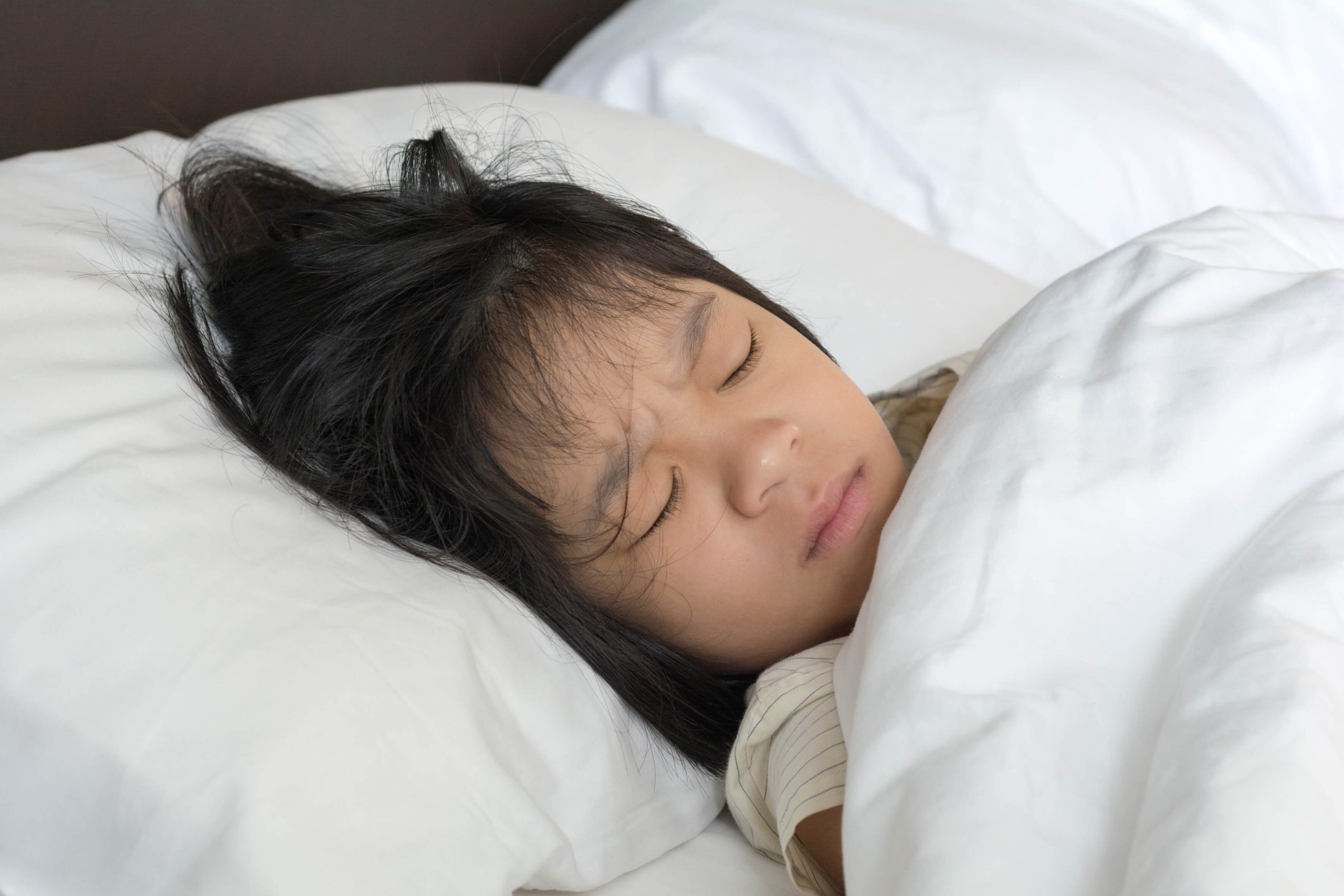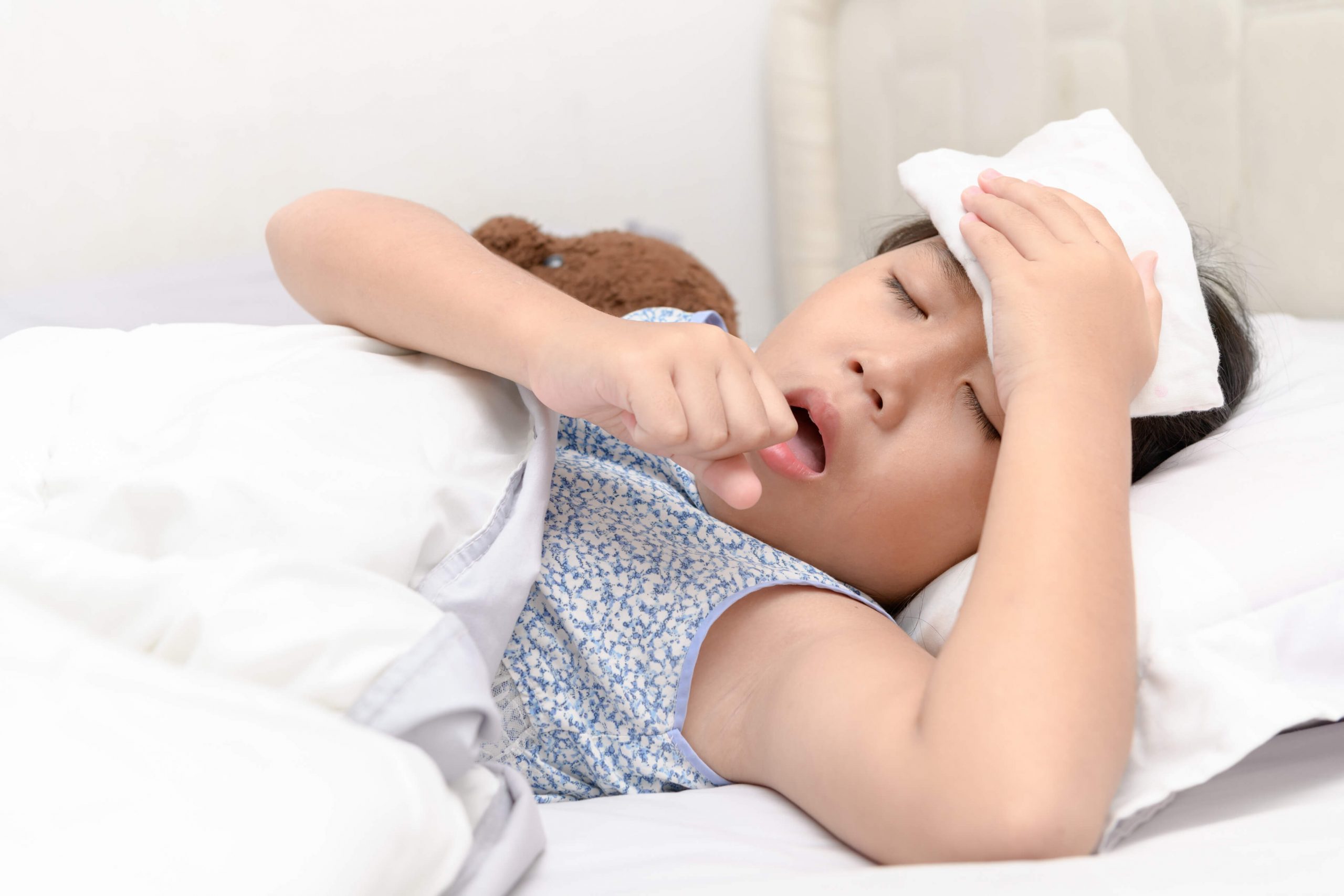Children & Parenting
How to Help Your Child Deal With Night Terrors

For most parents, waking up to the sounds of your child screaming and thrashing around is an alarming and frightening experience, particularly when attempts to comfort them are met with an unresponsive expression. This is a sign of night terrors.
While night terrors are typically not life-threatening, they may be a sign of an underlying medical condition or an issue revolving around your child’s life. Knowing about their symptoms and causes can help you better understand these night terror episodes and how to deal with them.
What Are Night Terrors?
Night terrors or sleep terrors are a type of parasomnia or disruptive sleep-related disorders that affects a sleep cycle. Night terrors typically occur during non-REM (non-rapid eye movement) sleep, in the first 3 to 4 hours of the night.
Although night terrors can happen to anyone, they are most common among children aged 3 to 6 and can continue up to 12 years old.
Night terrors differ from nightmares in which a person who has a night terror episode remains asleep and usually does not remember anything, whereas those who has nightmare will wake up from the dream and may remember some details.
What Are the Symptoms of Night Terrors?
During a night terror episode, your child might:
- Scream or shout
- Suddenly sit upright
- Thrash, flail or kick around
- Have rapid breathing and heart rate
- Stare wide-eyed, with their pupils dilating
- Tense their muscles
- Skin flushing
- Sweat excessively
What Causes Night Terrors?
Night terrors occur due to over-arousal of the central nervous system during the transition from the deepest stage of non-REM sleep to lighter REM sleep.
Some of the common causes and triggers of night terrors include:
- Family history of parasomnias
- Sleep deprivation or extreme fatigue
- Illness or fever
- Stress or emotional distress
- Sleeping in a new environment
- Certain medications
- Separation anxiety
- Sleep or breathing disorders such as obstructive sleep apnea, nocturnal asthma and restless leg syndrome
Are Night Terrors Serious?
Night terrors are generally not harmful, and occasional night terrors are usually not a major cause for concern. However, night terrors may indicate a more severe underlying medical condition which could lead to further complications if not treated properly.
Additionally, night terrors may require medical attention if they:
- Become more frequent
- Routinely and persistently disrupt the sleep cycle of your child
- Lead to safety concerns or injury to your child or other family members
- Result in excessive daytime sleepiness or affect their performance in the day
- Continue beyond your child’s teen years
How Are Night Terrors Diagnosed?
A night terror diagnosis may include:
- Physical examination. Your doctor may conduct a physical exam to identify any symptoms or conditions that may be contributing to your child’s night terror episodes. They may also review you and your child’s medical history to aid in the diagnosis.
- Nocturnal sleep study (polysomnography). In some cases, your doctor may recommend an overnight study in a sleep lab, where sensors will be placed on your child to record and monitor their brain waves, blood oxygen level, heart rate and breathing, as well as eye and leg movements during their sleep.
What Are the Treatment Options for Night Terrors?
Night terrors typically do not require any treatment as they usually go away on their own as your child becomes older. However, in some cases, treatment options may involve addressing the underlying medical conditions that may be causing the night terror episodes.
Some of the common treatment options include:
- Medication. Medications such as benzodiazepines or certain antidepressants may be effective in treating night terrors. However, they are rarely used to treat night terrors in children due to potential side effects and complications which may be dangerous. Your doctor will assess if your child requires medication for his/her condition.
- Treatment of underlying medical conditions. If your child’s night terrors are assessed to be associated with specific disorders such as obstructive sleep apnea, treatment will be aimed at treating these conditions.
Furthermore, most treatment options are actually preventive measures that reduce the likelihood of an episode trigger.
Here are some tips to help your child deal with night terrors:

- Ensure that your child has adequate rest by establishing a proper sleep schedule
- Create a bedtime routine that is calm and relaxing, such as reading books or simple meditation and stretching exercises
- Identify any possible sources of your child’s stress and guide your child on how to manage them. For serious cases, consider engaging a mental health professional to brainstorm and formulate a plan
- Give your child positive attention and encouragement if they have anxiety
- Keep your child’s bed environment safe and free from any hazards that may cause them to injure themselves during their night terror episodes
- Avoid waking your child up during their night terror episodes as you may make the episode last longer or accidentally trigger a physical response that may result in injuries
- Keeping a sleep diary by noting when your child’s night terror usually starts and waking them up about 15 minutes before that may stop night terrors from occurring
Conclusion
Witnessing a night terror episode may be a terrifying experience, especially if it’s your child’s first one. However, understanding how and why it happens, as well as knowing how to deal with them properly can reduce any further complications.
WHO WE ARE
About SOG Health Pte. Ltd.
Established in 2011, SOG Health Pte. Ltd. (“SOG”) is a leading healthcare service provider dedicated to delivering holistic health and wellness services to the modern family.
With a long and established track record in Singapore providing Obstetrics and Gynaecology (“O&G”) services such as pre-pregnancy counselling, delivery, pregnancy and post-delivery care, the Group has since further expanded its spectrum of healthcare services to include Paediatrics, Dermatology, and Cancer-related General Surgery (Colorectal, Breast & Thyroid).
The Group’s clinics, under its four operating segments of O&G, Paediatrics, Oncology and Dermatology, are strategically located throughout Singapore to provide easy access to its patients.
- Obstetrics
- Gynaecology
- GynaeOncology
- Breast, Thyroid & General Surgery
- Colorectal, Endoscopy & General Surgery
- Dermatology
- Paediatrics
Consult With A Specialist From SOG
Visit one of our specialists today to learn more about your health!
Recommended Specialists
Book An Appointment
Fill up this form and our clinic will get back to you shortly.
For general enquiries, please click here.




